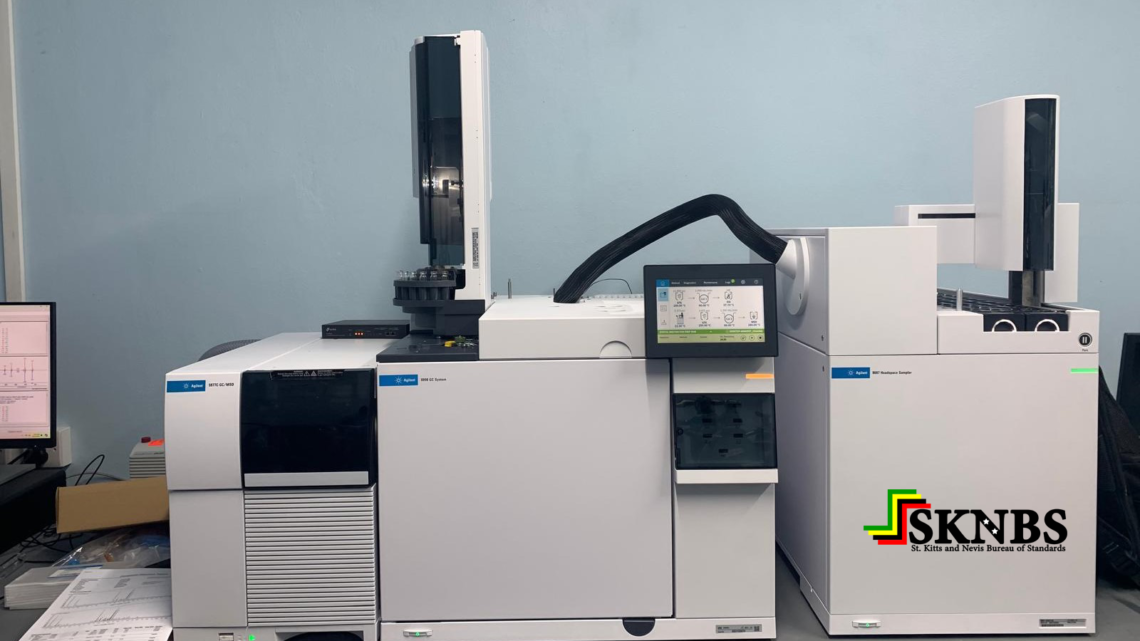
The St. Kitts and Nevis Bureau of Standards (SKNBS) has reached a significant milestone with the arrival of its new Gas Chromatograph-Mass Spectrometer (GC-MS) machine which was made possible with funding from the Caribbean Development Bank (CDB). The equipment will assist multiple law enforcement agencies in their national security efforts and greatly enhance the Bureau’s ability to confirm residual pesticide levels in fresh and packaged foods, as well as water sources.
Relevant staff is currently being trained to operate this advanced equipment, which will revolutionise the testing capabilities of agencies including the Customs and Excise Department, National Security, the Forensic Lab, and the Royal St. Christopher and Nevis Police Force, enabling them to detect contaminants and analyse chemicals with greater precision.
The GC-MS will also elevate the bureau’s capacity to identify pesticide residue levels in fresh and packaged foods and water sources. Local agro-processors will benefit from having their goods certified as safe for consumption, increasing their trade value across borders not only within the Caribbean but also under the Economic Partnership Agreement (EPA). This development will build trust in the quality of local products, enhancing their marketability and ensuring compliance with international safety standards.
Commenting on this advancement, Director of the Bureau, Mr. Stuart LaPlace, expressed his enthusiasm for the new technology.
“The acquisition of the GCMS machine is a major step forward for us,” he said. “This cutting-edge equipment will allow us to better safeguard the public and support multiple agencies in their vital work. From agro-processing to law enforcement, the benefits of this technology are immense, and it will play a crucial role in ensuring the safety and quality of goods, as well as protecting our nation’s security.”
With the implementation of the GC-MS, the SKNBS reinforces its dedication to quality assurance, consumer protection, and public health in St. Kitts and Nevis. This milestone represents a proactive approach to promoting safety in food, water, and public security, further solidifying the country’s position in regional and international trade.
-End-
